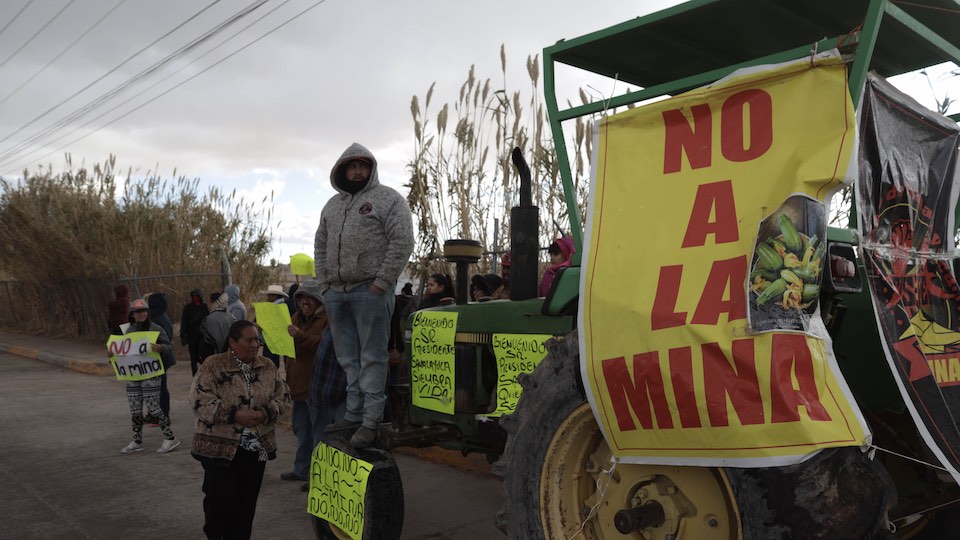200 environmental activists killed worldwide in 2021

Working for the environment and nature is life-threatening in many places. Last year, at least 200 environmentalists were killed worldwide. This is according to the annual report of the non-governmental organization Global Witness, which was published last week. According to the report, more than 1700 activists were murdered between 2012 and 2021.
More than three-quarters of all fatal attacks in 2021 were recorded in Latin America. The most dangerous country for conservationists, according to the report, was Mexico, where 54 activists died compared to 30 the previous year. Colombia, where 33 environmentalists were killed, and Brazil, with 26 murders, were next in the statistics. 78 percent of the murders in Brazil, Peru (7) and Venezuela (4) would have occurred in the Amazon.
The organization also registered double-digit case numbers in the Philippines (19), Nicaragua (15) and India (14). In many countries, environmentalists are also threatened, intimidated, defamed or criminalized for their work.
Presumably high number of unreported cases
In Africa, Global Witness documented a total of ten murders in 2021. Eight of them took place in the Democratic Republic of Congo – all in the Virunga National Park. The national park continues to be “extremely dangerous” for the rangers working there.
The actual number of environmentalists killed worldwide, however, could be significantly higher, according to the organization. It remains difficult to verify cases in Africa, for example, and it is possible that many killings go unreported. In other parts of the world, restrictions on press freedom and civil society, for example, mean that not all attacks are registered.
Globally, most of the killings (27) were related to protests against mining. Most of these deadly attacks occurred in Mexico (15), followed by the Philippines (6), Venezuela (4), Nicaragua and Ecuador (one murder each). Many acts were also linked to protests against deforestation, agriculture, and dams. However, it was not possible in all cases to clearly attribute them to one area. Most of the murders would never be solved.
Murders of indigenous people
Members of indigenous populations are attacked more often than average when they stand up for their rights. They were the target of 40 percent of all fatal attacks, even though they make up only five percent of the world’s population, according to the organization. Such killings have been documented primarily in Mexico, Colombia, Nicaragua, Peru and the Philippines.
In April 2021, for example, José Santos Isaac Chávez was killed in Mexico. The indigenous man was the only candidate for local council who had openly opposed the Peña Colorada iron ore mine. He was found dead with torture marks in his car, which had fallen off a cliff.
The mine had been in operation since the 1970s, according to Global Witness. It had destroyed the Cerro de Los Juanes mountain. Mining had also led to deforestation, the loss of wildlife and toxic contamination. The actual extent of the damage cannot be quantified, however, because independent investigators are not allowed to enter the site. A drug cartel is also allegedly involved in illegal mining in the area.
About one in ten registered murders had involved women, and almost two-thirds of the women killed had an indigenous background.
A murder every two days
The organization has published its report on murders of environmentalists since 2012, documenting a total of 1733 deaths over the past ten years – an average of one murder every two days. Global Witness recorded the most acts within those ten years in Brazil (in German) (342), followed by Colombia (322), the Philippines (270), Mexico (154) and Honduras (117). Nearly 70 percent of all killings occurred in Latin America.
A spokeswoman for Global Witness said, “All over the world, Indigenous peoples, environmental activists and other land and environmental defenders risk their lives for the fight against climate change and biodiversity loss. They play a crucial role as a first line of defence against ecological collapse, yet are under attack themselves facing violence, criminalisation and harassment perpetuated by repressive governments and companies prioritising profit over human and environmental harm.”
The organization calls on states to protect activists. Laws already in place to protect environmentalists must be enforced, it said. If such laws do not already exist, they would have to be created. In addition, attempts to criminalize activists must be stopped. States should also require companies and financial institutions to assess human rights impacts and environmental risks in their global operations.
Companies should identify and prevent human rights abuses and environmental damage and compensate those affected.
Global Witness also appeals to the EU to tighten up the planned supply chain law (in German) with regard to indigenous rights, among other things. The planned due diligence obligations for companies must also be expanded in relation to the climate crisis.
However, the organization also reports successes: In May, for example, an Indonesian court declared the permit for a gold mine invalid and ordered local authorities to revoke it. Residents of the Sangihe Islands had successfully sued against the mine, fearing widespread environmental destruction from the 42,000-hectare mining site.
In Honduras, the former head of a dam company was also sentenced to 22 years in prison in July 2021 for his role in ordering the murder of an indigenous environmentalist. The activist, Berta Cáceres, had been shot dead by contract killers in 2016 after years of resistance to a dam on the Gualcarque River in western Honduras. (dpa / js)